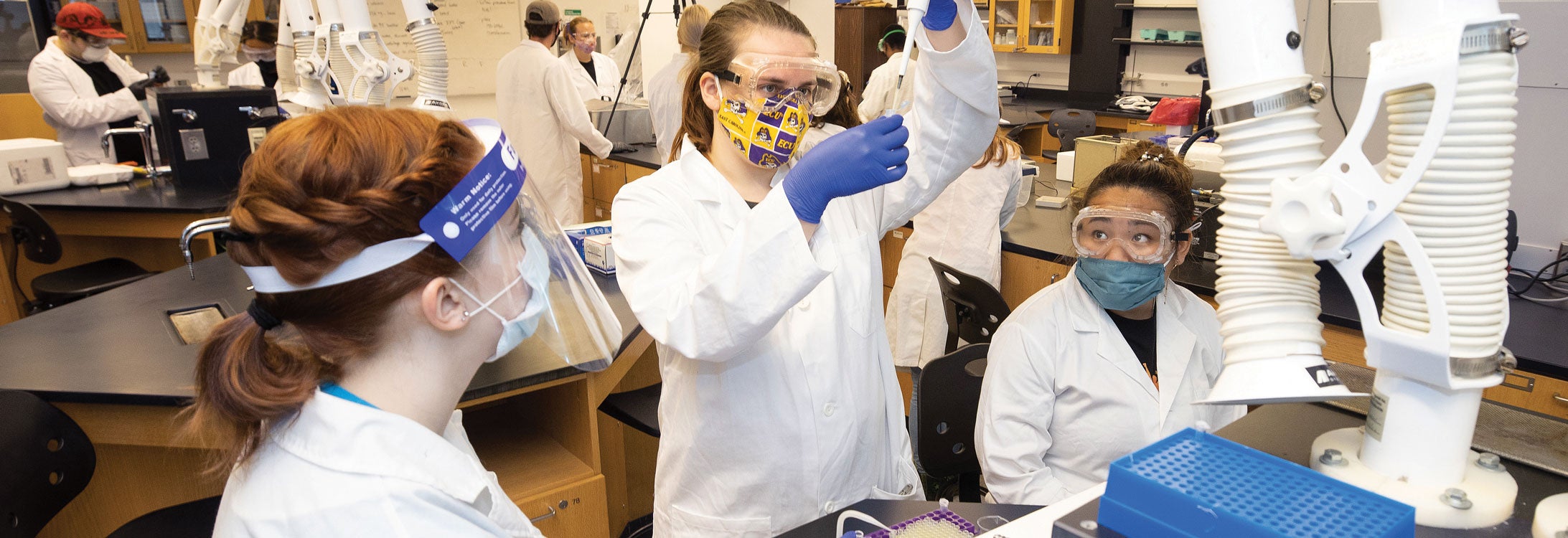Women in STEM thrive at ECU
ECU’s work to address gender inequality has received a major boost in the form of a three-year, $999,074 grant from the National Science Foundation.
Interim Chancellor Ron Mitchelson is the principal investigator on the project, called THRIVE: Towards Hiring, Resources, Inclusion, Value and Excellence. Stephanie George of the Department of Engineering, Rachel Roper of the Brody School of Medicine, Crystal Chambers of the College of Education and Kristen Myers of the Department of Sociology are co-principal investigators, and numerous other faculty members have contributed to the pursuit of NSF funding for the project, which dates to 2013.
The NSF ADVANCE program that funded ECU’s project is designed to build gender equity through identifying and eliminating organizational barriers that impede the full participation and advancement of diverse faculty in academic institutions.
The project is aimed at supporting and improving efforts to recruit and retain women in faculty positions, especially in STEM (science, technology, engineering and math) fields. THRIVE is adapted from a project called Advocates and Allies that began at North Dakota State University and has been implemented at other institutions across the country.
“Advocates and Allies recognizes that the people who really have to change the structure are the people who are most privileged by the structure,” Myers said. “And typically in STEM fields that is full professors, who are usually men. So they recruited these usually white men in positions of authority” as allies in the effort to change the culture.
Fortunately, she said, ECU isn’t starting from scratch. “ECU has made a ton of progress over the years,” she said. “We were able to demonstrate that we’re not dealing with a toxic, hostile climate that we have to fix; it’s that ECU has laid this groundwork, and we’re ready to roll.”
Having the interim chancellor as lead investigator shows ECU is serious, she added.
Roper said raising awareness is a foundational goal of the project because most people are unaware studies show men and women are still biased against women in STEM.
ECU has 23 STEM departments, she said, encompassing a considerable proportion of the university’s faculty.
